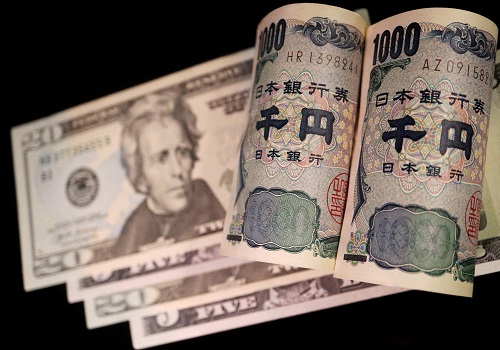Asian stocks, currencies fall as strong data fans hawkish Fed bets

Follow us Now on Telegram ! Get daily 10 - 12 important updates on Business, Finance and Investment. Join our Telegram Channel
Asian stocks fell on Wednesday as investors failed to find any cheer in strong U.S. economic data and instead considered what it might mean for a hawkish Federal Reserve, with a surging dollar weighing heavily on regional currencies.
Tracking Wall Street's losses, MSCI's broadest index of Asia-Pacific shares outside Japan dipped 1.5% in early trading and Japan's benchmark Nikkei average opened down 1.12%.
Fixed-income markets came under heavy pressure with U.S. 10-year treasuries yields rising to 3.365% on Wednesday, the highest since June 16.
Data overnight showed the U.S. services industry picking up in August for the second straight month amid stronger order growth and employment.
While that reinforced views the economy was not in recession, it also added to expectations the U.S. central bank would not be slowing the pace of interest rate hikes any time soon.
"The good news for the real economy has now become bad news for the market - both for the bond and the stock market," said Redmond Wong, Hong Kong-based Market Strategist of Greater China at Saxo Capital Markets.
Weaker than expected jobs data last week ignited hopes the Fed may consider a soft landing with slower rate hikes, but "that hope pretty much vanished again" on the new set of numbers, he added.
"Investors we talked to ... have lost quite a bit of confidence in the (stock) market," Wong said, adding investors have showed renewed interest in high-grade bonds to gain cash flow from coupons.
Australia's S&P/ASX 200 lost 1.29%. Its economic growth in the second quarter this year picked up speed, offering hope activity can weather sharply higher interest rates and cost-of-living pressures.
Shares in Hong Kong fell 1.35% with its main tech index losing 1.9%.
China's benchmark edged down 0.11% on concerns about fresh COVID restrictions on large mainland cities such as Guiyang, following a full lock down of the southwest city of Chengdu.
Asian currencies tumbled against the dollar due to a surge in the U.S. bond yields.
The Japanese yen hit a fresh 24-year low of 143.57 per dollar and China's yuan weakened 0.25% to 6.96 against the dollar, approaching the psychologically important 7 mark.
Chinese authorities have already signaled concerns about the currency's aggressive declines.
In energy markets, crude oil prices stumbled on weaker consumption forecast. U.S. crude fell 1.22% to $85.8 per barrel and Brent was at $92, down 1% on the day.
Spot gold lost 0.4% to $1,694 an ounce.












 320-x-100_uti_gold.jpg" alt="Advertisement">
320-x-100_uti_gold.jpg" alt="Advertisement">












